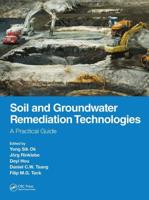Publisher's Synopsis
Excerpt from Principles of Rural Economics
Though agriculture is our oldest and by far our largest and most important industry, it has only recently occurred to us in the United States that we had a rural problem. Nations, like individuals, are wont to prize the things they do not have rather than the things they have. Agriculture was so natural to our conditions, and established itself so easily, that we took it as a matter of course and gave our attention to the development of industries which did not show a disposition to grow naturally. Accordingly, during the first century of our national existence, our economic policy was framed mainly in the interest of the urban industries. The logical result of this artificial fostering of manufactures and commerce was the rapid building up of great overgrown cities and the creation of a group of urban social problems for which we were woefully unprepared. During the next twenty-five years these problems occupied the attention of economists and students of social science almost to the ex clusion of everything else. It is only during the last decade that we have awakened to the fact that there is a rural as well as an urban problem. The agricultural colleges and the universities began offering courses on agricultural and rural economics, and there has been a remarkable development of interest in agricul ture in the high schools of the country, which augurs well for the future of rural civilization in America.
About the Publisher
Forgotten Books publishes hundreds of thousands of rare and classic books. Find more at www.forgottenbooks.com
This book is a reproduction of an important historical work. Forgotten Books uses state-of-the-art technology to digitally reconstruct the work, preserving the original format whilst repairing imperfections present in the aged copy. In rare cases, an imperfection in the original, such as a blemish or missing page, may be replicated in our edition. We do, however, repair the vast majority of imperfections successfully; any imperfections that remain are intentionally left to preserve the state of such historical works.










